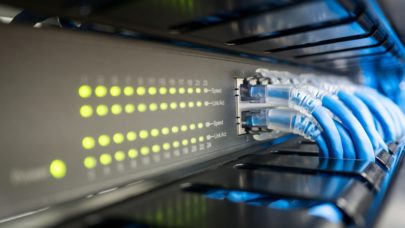Jan. 22, 2021 — An international collaboration project to develop and implement novel genome-based disease prediction tools has received over 10 million euros from the EU Horizon 2020 Research and Innovation program. The project aims to demonstrate the potential and benefits of powerful artificial intelligence (AI) technologies on the generation of genetic predictive scores and to test their clinical validity.
Genomics has the potential to revolutionize healthcare, but novel research is required to leverage the large pool of genomic and health data in Europe and beyond to advance personalized medicine.
 The INTERVENE project aims to develop and test next generation tools for prevention, diagnosis and personalized treatment of both common and rare diseases by using advanced AI-based approaches on a large pool of genomic and longitudinal health data currently stored in biobanks and medical repositories.
The INTERVENE project aims to develop and test next generation tools for prevention, diagnosis and personalized treatment of both common and rare diseases by using advanced AI-based approaches on a large pool of genomic and longitudinal health data currently stored in biobanks and medical repositories.
The project focuses on developing improved genetic risk scores and testing their clinical validity. Genetic risk scores are statistical tools generated based on genome-wide profiling of individuals and the effects of each genetic variant on a risk of each disease.
In the INTERVENE project, life-long clinical and laboratory measurement data will be integrated with the genetic scores to create powerful predictive tools and to identify individuals at high risk of getting the disease. For three diseases with tremendous public health burden – cardiovascular disease, type 2 diabetes and breast cancer – the utility of AI-empowered tools will be tested in clinical settings in Finland, Estonia and Italy.
INTERVENE will also build a new European platform that will allow researchers and clinicians to easily calculate genetic scores with the goal to enable a wide adoption of genetic risk scores as a gold standard in clinical research. To do this, the INTERVENE consortium has united leading experts from academia, industry, health care providers and patient advocacy groups.
 “There is a pressing need for developing efficient development and testing platforms to enhance clinical validation of these powerful algorithms. To solve this need, INTERVENE brings together the leaders in AI methods development, biobanks, clinical research, IT infrastructures, and ethical, legal and societal impact in Europe and beyond,” says Professor Samuli Ripatti from the University of Helsinki, the organization coordinating the project.
“There is a pressing need for developing efficient development and testing platforms to enhance clinical validation of these powerful algorithms. To solve this need, INTERVENE brings together the leaders in AI methods development, biobanks, clinical research, IT infrastructures, and ethical, legal and societal impact in Europe and beyond,” says Professor Samuli Ripatti from the University of Helsinki, the organization coordinating the project.
“Furthermore, we need the novel tools to be able to automatically calculate the scores in different ancestry groups and to communicate the risk information to clinicians and to citizens in an understandable manner.”
Despite the fast accumulating scientific evidence, the predictive value of genetic risk scores has not been tested in clinical practice for many preventable diseases. In the INTERVENE project, the newly developed tools will be taken into clinical environment and their real-world benefits will be evaluated together with clinical experts, European patients advocate groups and medical societies.
By giving special emphasis to the regulatory and ethical implications, a framework for legally and ethically responsible translation into wider clinical practice will be developed.
CSC – IT Center for Science is a partner in INTERVENE project acting as both a service provider and a networking enabler. The project itself aims to connect biobanks and cohorts together so that the researchers can create algorithms for providing the best risk scores for various diseases. CSC makes it possible connecting Biobank data for researchers of FIMM, HUS (Helsinki University Hospital) and Aalto University, first within ePouta service, and later bringing the High-Performance-Computing resources available for sensitive data.
CSC and EMBL-EBI jointly provide data management backbone for this project. CSC also provides data management coordination for project members, e.g. providing international standards and working with biobanks preparing their data for researchers.
“INTERVENE really is the best national use case for providing HPC access to sensitive data. It links University of Helsinki, FIMM, Aalto University, HUS and CSC together. We are very much looking forward to close collaboration with these partners,” says Development Manager Ilkka Lappalainen from CSC.
The results of the project will hopefully provide unprecedented precision in personalized prediction models and thus more effective prevention and better treatment options for patients suffering from a variety of complex and rare diseases.
The project has received funding from the European Union’s Horizon 2020 research and innovation programme under grant agreement No 101016775. The INTERVENE (International consortium for integrative genomics prediction) project will run for 5 years, starting on January 1, 2021.
The authors are responsible for the material presented and views expressed here. The European Commission is not responsible for any use that be made of the information herein.
For more information, please visit the project website at www.interveneproject.eu.
Source: CSC

























































